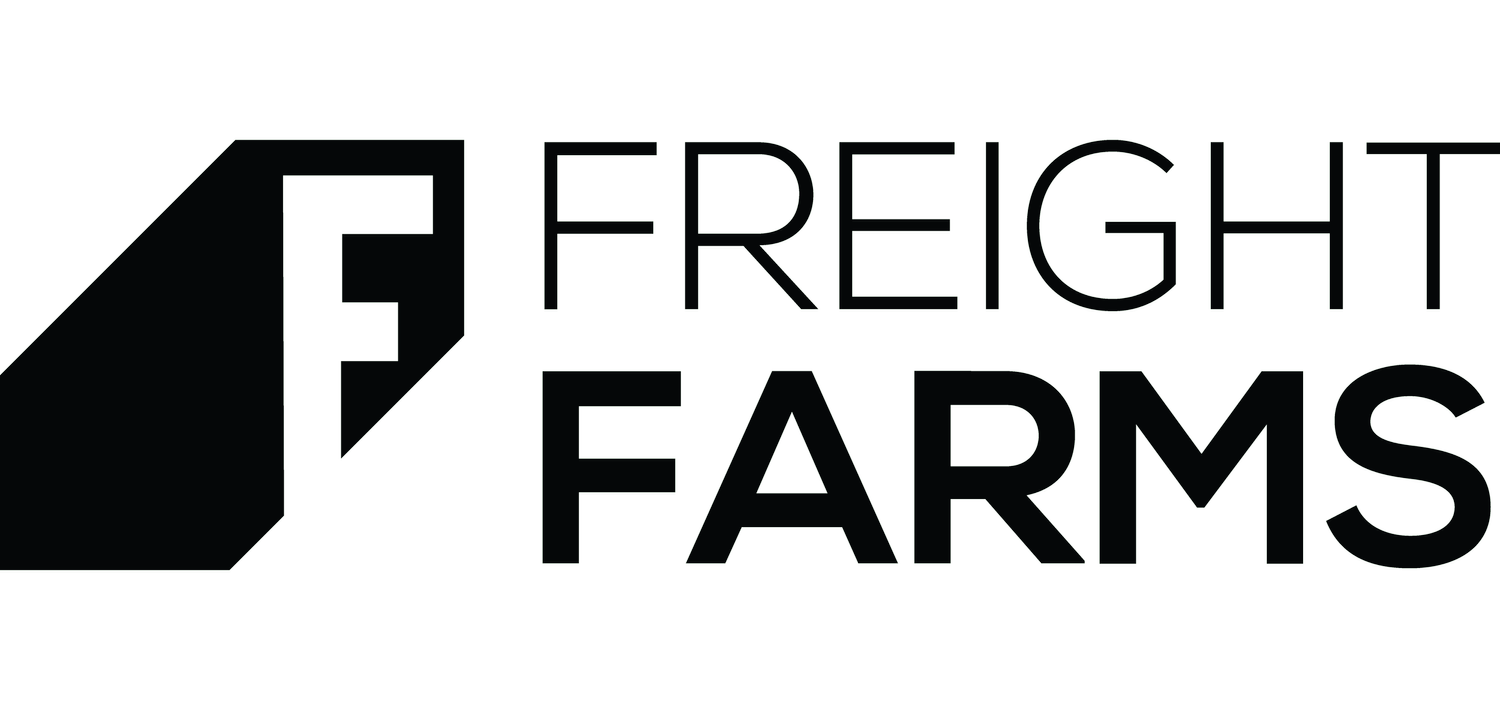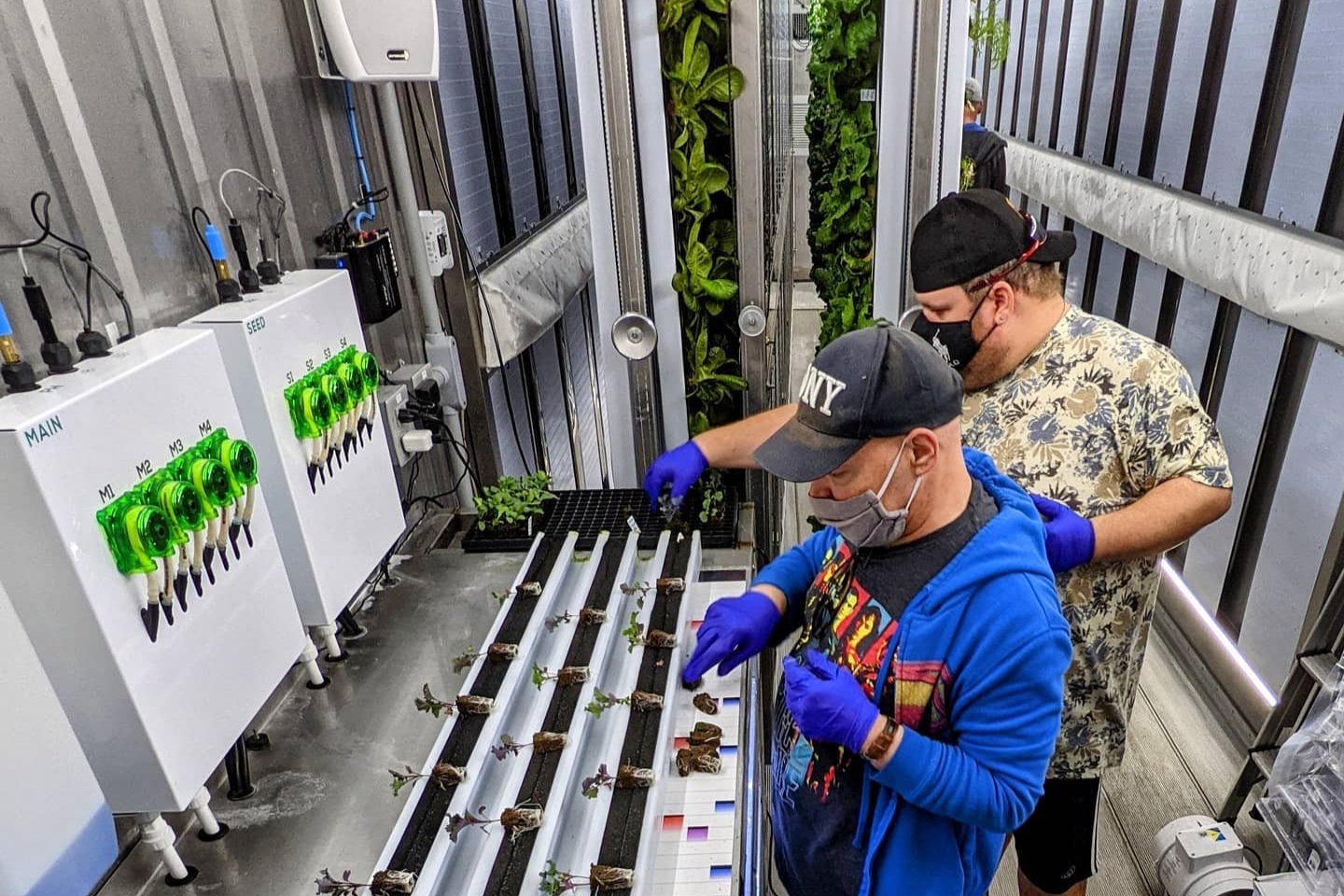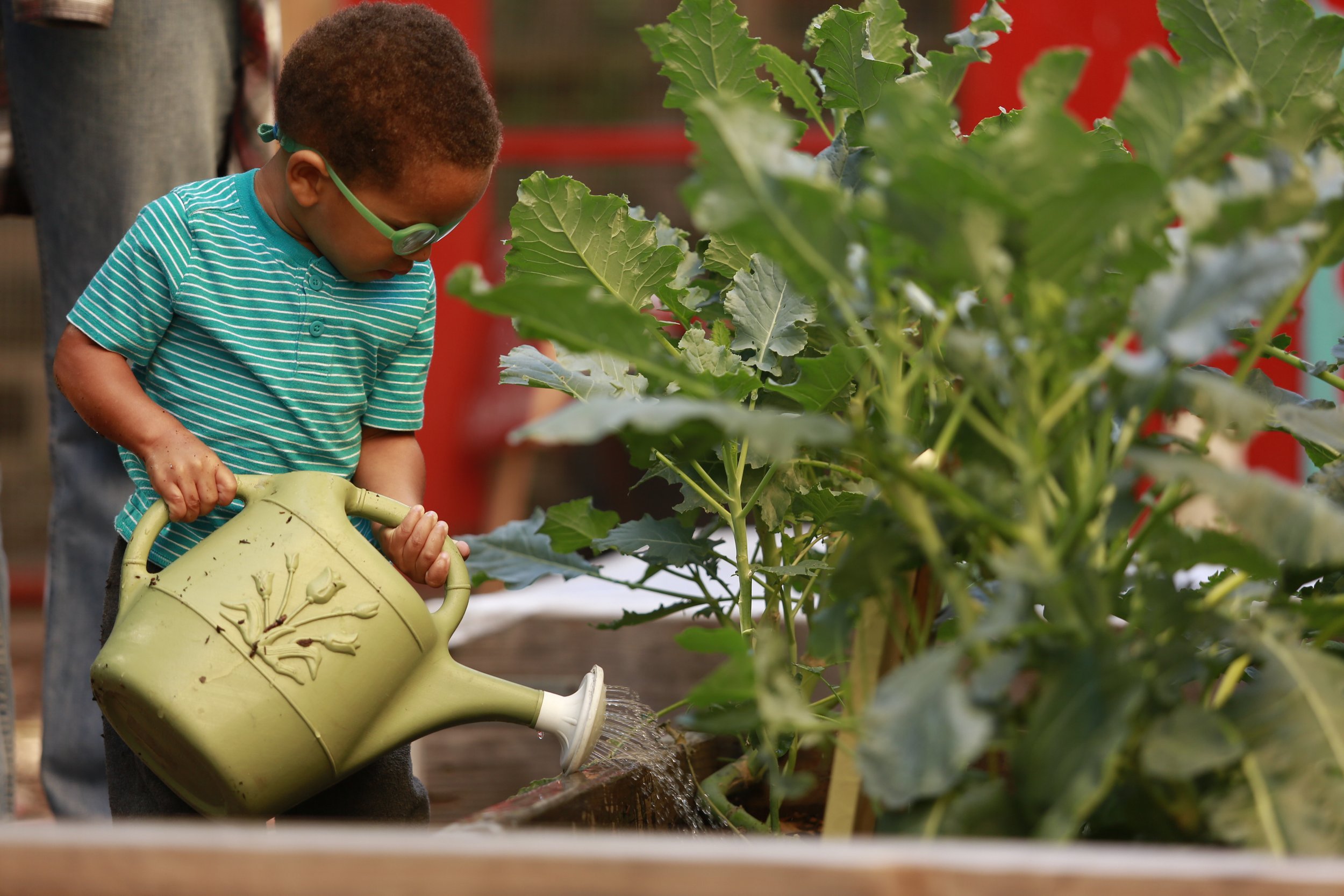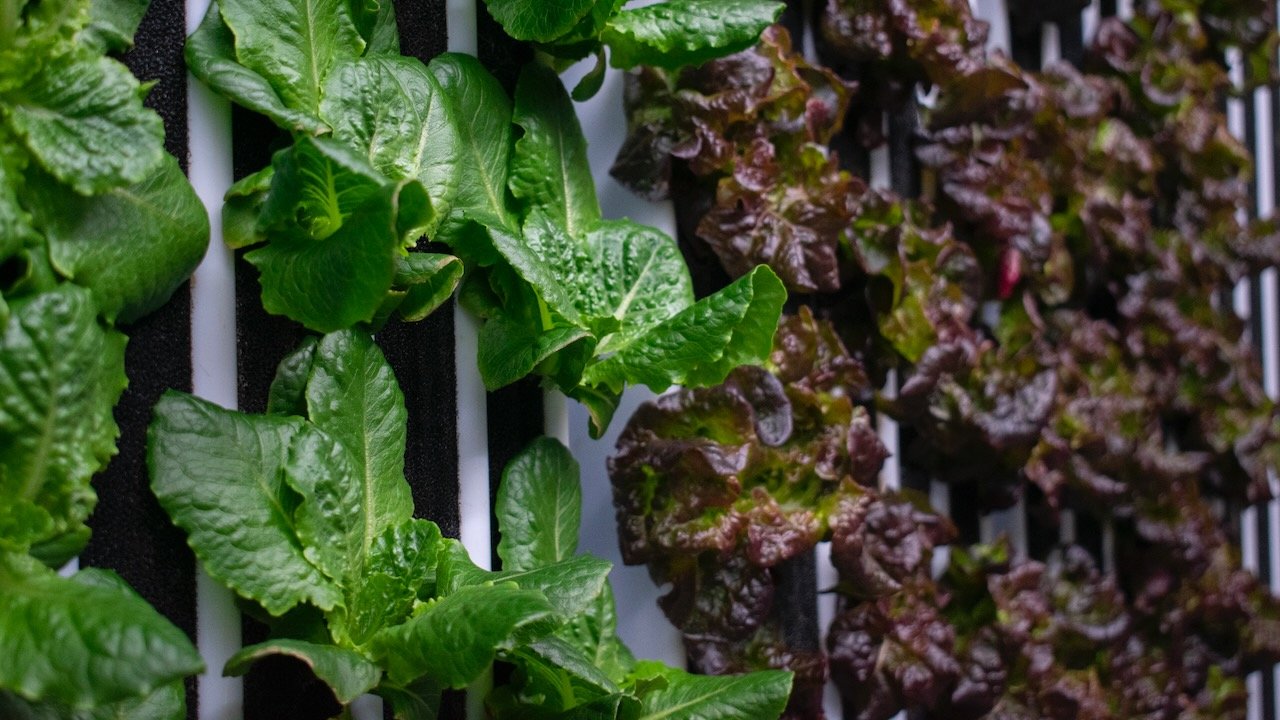Why 10 Nonprofits Started Container Farms (and How They Did It)
Want to teach kids? Increase food access for a food desert? Serve veterans, increase mental health, improve nutrition, and more? Check, check, check.
There are countless ways to use a Freight Farm as a nonprofit. A container farm doesn’t just allow you to grow lots of fresh food to feed your population; it offers immense potential. Here are just 10 nonprofits that use container farms to serve a wide variety of populations through unique programs, sustained by diverse funding streams. Learn how each of them turned idea into impact.
1. The shelter where a farm helps women and children heal
Lotus House Shelter | Miami, FL
Farm Funding: A variety of grants through Miami-Dade County and the state; philanthropy from a local foundation
Population: Women and children experiencing homelessness
Focus: Food Security, Nutrition, Mental Health, Education
This progressive women’s and children’s shelter incorporated a Freight Farm into their programming to provide an opportunity for clients to learn about nutrition and growing healthy food (and taste it, too!). Their container farm is a place for women and children experiencing homelessness to heal body, mind, and spirit.
More than 500 women and children access meals full of Freight Farm-grown veggies each day at the shelter’s dining pavilion. Salads, pesto pasta — yum!
Learn more: Read Case Study | Watch Video | Visit Website
2. The Black-led grocery store eliminating a food desert
Pillsbury United Communities | Minneapolis, MN
Farm Funding: The Cargill Foundation
Population: Residents in a low-income, primarily BIPOC neighborhood
Focus: Food Security, Community
Until 2017, the population in the Northside neighborhood of Minneapolis was both largely enrolled in SNAP and WIC benefits and paradoxically not using them. The issue? There wasn’t a grocery store in the area. That’s why Pillsbury United Communities started North Market, a Black-led grocery store with fresh food grown right in a Freight Farm in the parking lot. The container farm helps the organization get fresh food to locals and improve their nutrition. Food is sold at an affordable price, and proceeds are put toward sustaining the program. Said Ethan Neal, Food Systems Manager at Pillsbury United Communities, “It’s more than a community center, it’s more than a grocery store: We’re creating the product right there, we’re selling directly into North Market, we’re cutting out the middleman...and passing the savings on to customers and clients.”
Learn more: Read Case Study | Watch Webinar | Visit Website
3. The farm that helps veterans reassimilate
OD Greens | Cleveland, OH
Farm Funding: VA Business Loan
Population: Veterans
Focus: Mental Health, Workforce Development
OD greens was founded to connect veterans with service-related disabilities or PTSD to the healing benefits of horticulture therapy. While using their hands and receiving the healing benefits of working with plants, vets help to operate the Freight Farm, gaining work training and experience to help them land a civilian job — and ultimately helping them to reassimilate to civilian life.
Learn more: Read Farmer Q&A | Visit Website
4. The innovative after-school program
Boys & Girls Clubs of Metro South | Brockton & Taunton, MA
Farm Funding: State Food Security Infrastructure Grant; Beth Israel Lahey Health Community Benefits Grant
Population: Kids and community members
Focus: Education, Food Security, Nutrition, Community
This Boys & Girls Club operates two container farms with the help of community volunteers and a full-time farm director. Boys & Girls Clubs of Metro South built and curated farm programming to make the greatest possible impact on their community. As kids help to grow and harvest produce, they learn STEM competencies, nutrition, and where food comes from. And as their fresh food hits the plate — either at the Club salad bar or via free food distribution at the Club and local organizations, the Club actively increases community food access.
Learn more: Read Case Study | Watch Video | Watch Webinar | Visit Website
5. The community for adults with mental illnesses
San Antonio Clubhouse | San Antonio, TX
Farm Funding: Impact San Antonio Grant
Population: Adults with mental illness
Focus: Mental Health, Workforce Development, Community
This peer-led support program focuses on empowerment to help people overcome mental health challenges. Their Freight Farm empowers San Antonio Clubhouse members by offering a space for them to connect with peers, try something new, and gain confidence in it. Plus, the quiet and peaceful farm is a natural space for improving mental health.
Learn more: Read Case Study | Watch Webinar | Visit Website
6. The farm where adults with special needs find meaningful employment
Zeponic Farms | Springfield, VA
Farm Funding: Privately funded
Population: Adults with special needs
Focus: Workforce Development, Community
Too often, people with autism and other special needs are unable to find work. Zeponic Farms was founded to serve this need. The farm partners with a local college’s program for adults with developmental and intellectual disabilities to involve students with special needs in the operation of a hydroponic farming business, which in turn gives them a sense of community and meaningful work. The fresh produce from Zeponic Farms’ Freight Farm is funneled to the partner college’s dining hall.
Learn more: Farmer Q&A | Website
7. The youth farming program that donates 100% back to the community
2Gether We Eat | Worcester, MA
Farm Funding: Greater Worcester Community Foundation grant; other grants through the support of Magic Lamp Consulting
Population: Youth
Focus: Education, Food Security, Workforce Development
“Eat from the land, not the can,” is this organization’s motto. 2Gether We Eat uses a container farm to feed, train, and employ youth while simultaneously fighting food deserts; 100% of the produce they grow is donated to food banks and other community nonprofits. Kids participating in the program organically learn math, biology, and chemistry all while engaging with the hydroponic farm. Plus, they’re learning healthy habits while they’re at it!
Learn more: Website
8. The soup kitchen growing its own veggies
5N2 | Toronto, Ontario
Farm Funding: Grant money; private donors
Population: Individuals experiencing homelessness
Focus: Food Security
5N2 serves over 3,500 meals weekly to Toronto residents and supplies grocery bags to individuals in more isolated neighborhoods of the city. They previously relied on using donated non-salable produce in their meals, but in 2021, they bought two Freight Farms, which offer a source of (actually fresh) produce. The farms also help them to produce some revenue, which will be critical in sustaining their work in years to come.
Learn more: Website
9. The shelter for youth
Iowa Homeless Youth Shelter | Des Moines, IA
Farm Funding: State Grant
Population: Youth experiencing homelessness
Focus: Food Security, Workforce Development
The Iowa Homeless Youth Shelter runs two Freight Farms, with four more on the way! For the shelter, the farms are a platform to teach youth soft skills and give them paid job experience — critical in helping kids escape the cycle of poverty. They shelter is partnering with a local solar provider to reduce the carbon footprint of their container farms. A local grocery store purchases their harvests, producing income to sustain the program.
10. The inner-city youth farming program
Harlem Grown | New York, NY
Farm Funding: Corporate partnership with EPRI
Population: Youth in Harlem, NY
Focus: Education, Community, Food Security, Nutrition
This nonprofit uses urban farms as living classrooms to educate youth and revitalize Harlem. In turning empty urban lots into fertile growing spaces, Harlem Grown improves the community and gives kids a chance to learn all about agriculture and sustainability. A hydroponic Freight Farm rounds out their offerings, which also includes a mushroom chamber, urban gardens, chickens, bees, and composting.
EPRI, a power research institute, made the whole thing possible by purchasing the Freight Farm for Harlem Grown.
Learn more: Website
What else can offer so much opportunity to nonprofits in such a small package? With a footprint of just 40’x8’, a Freight Farm can grow 2+ tons of produce each year and healthier, smarter, closer, and more resilient communities.
Download our Farm For Good booklet to learn more about how to bring a Freight Farm to your organization!
Learn more:
Opportunities for Nonprofits
How to Plan a Freight Farming Project
Farm Funding
Customer Support & Training















